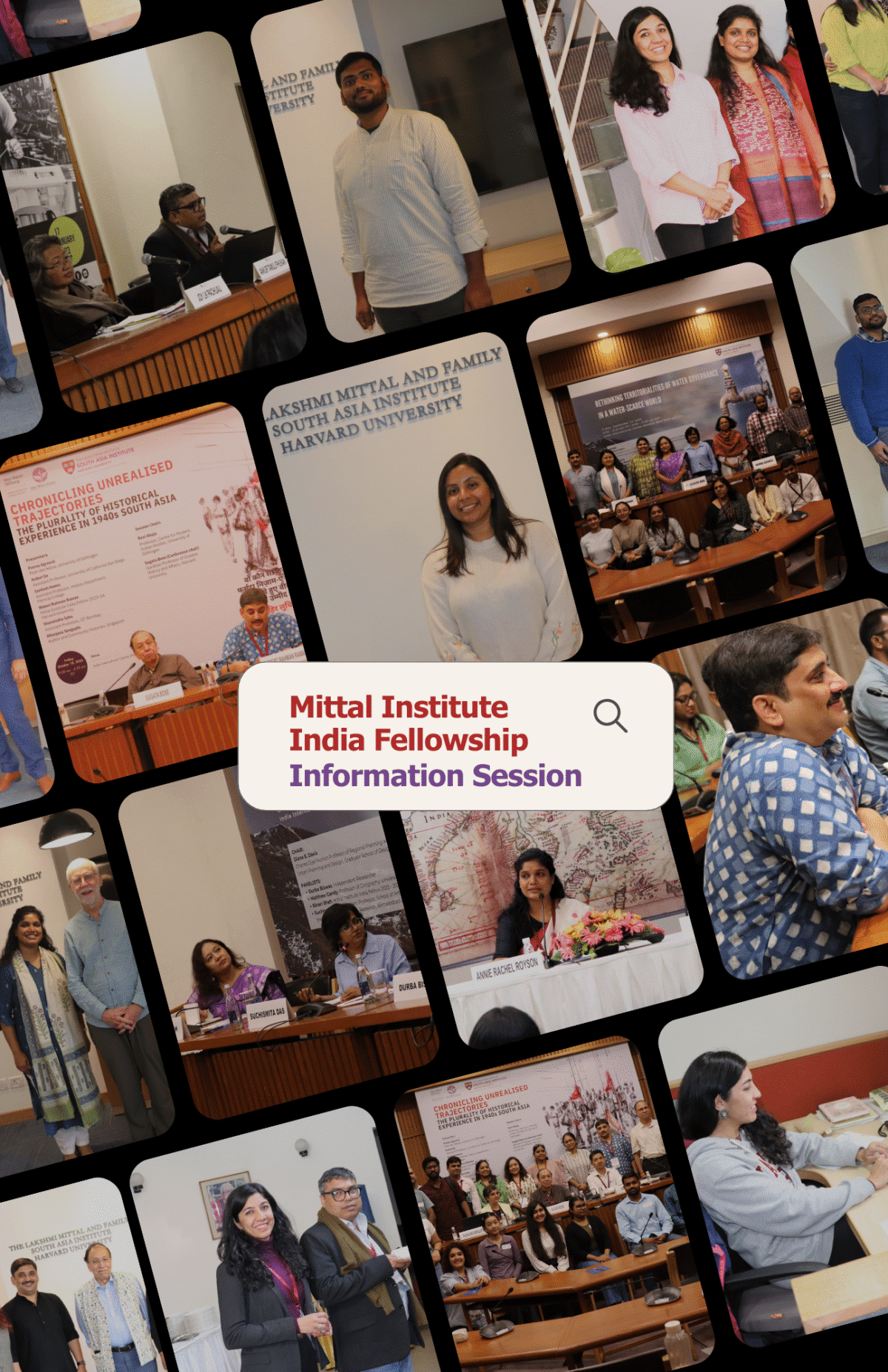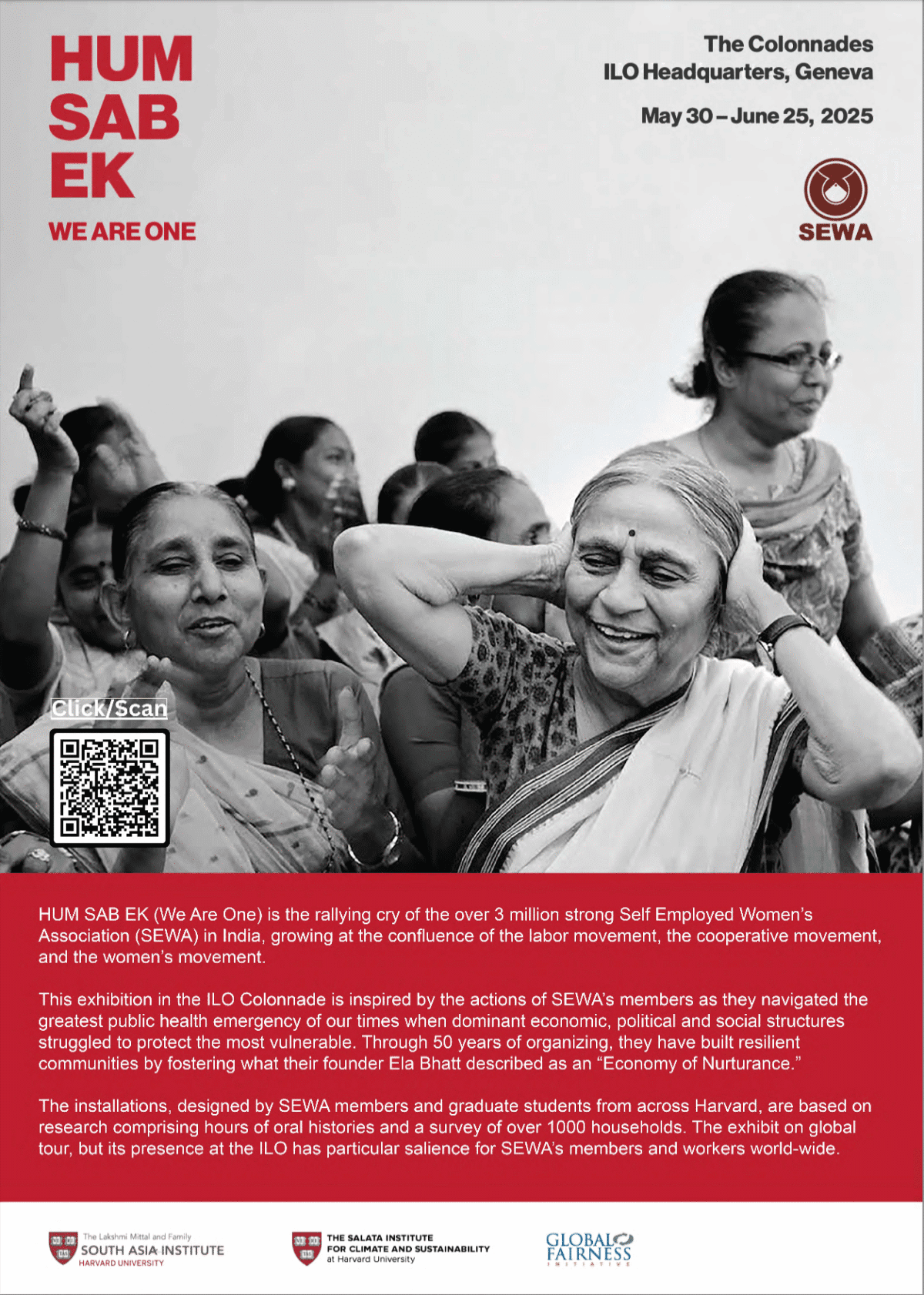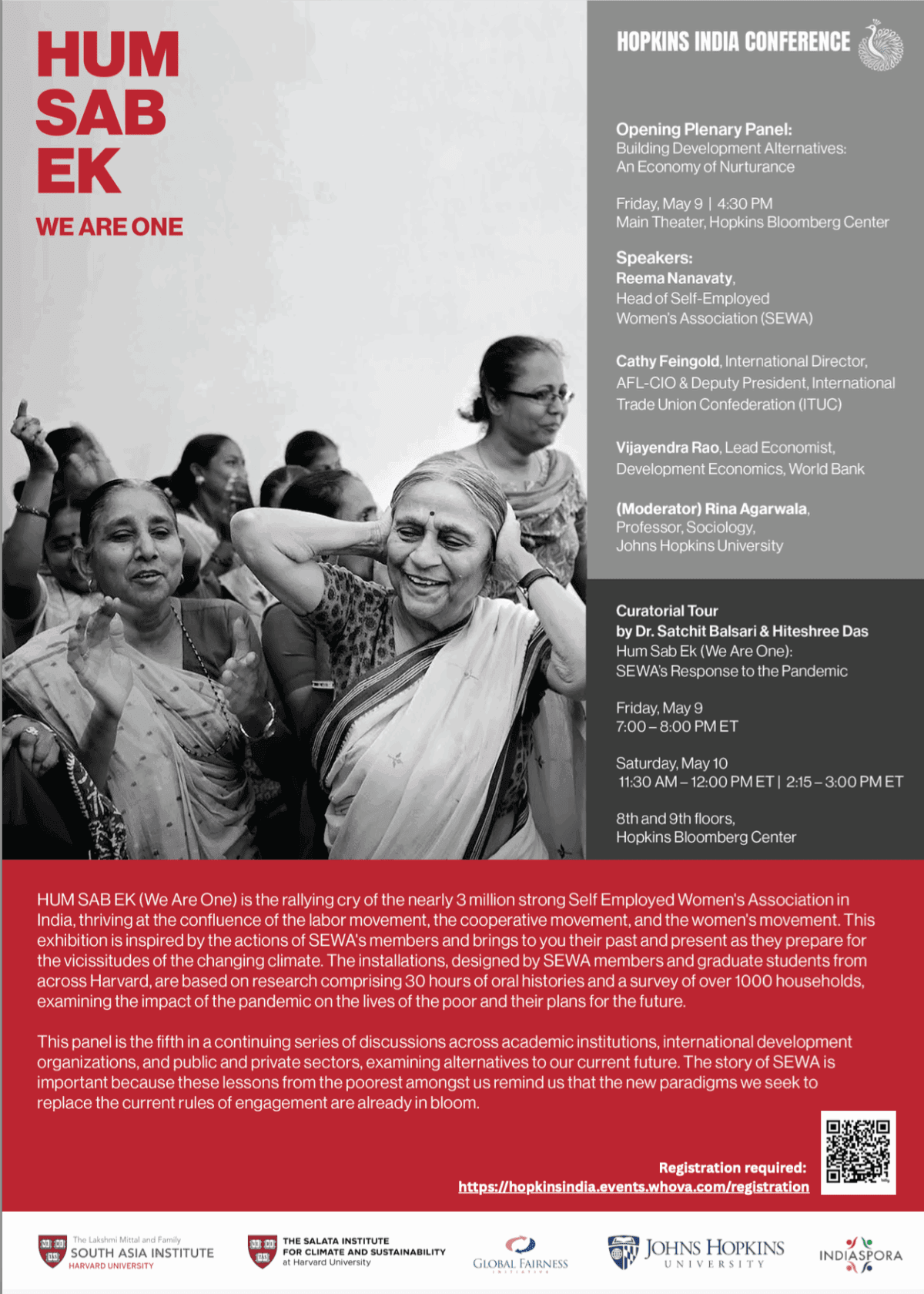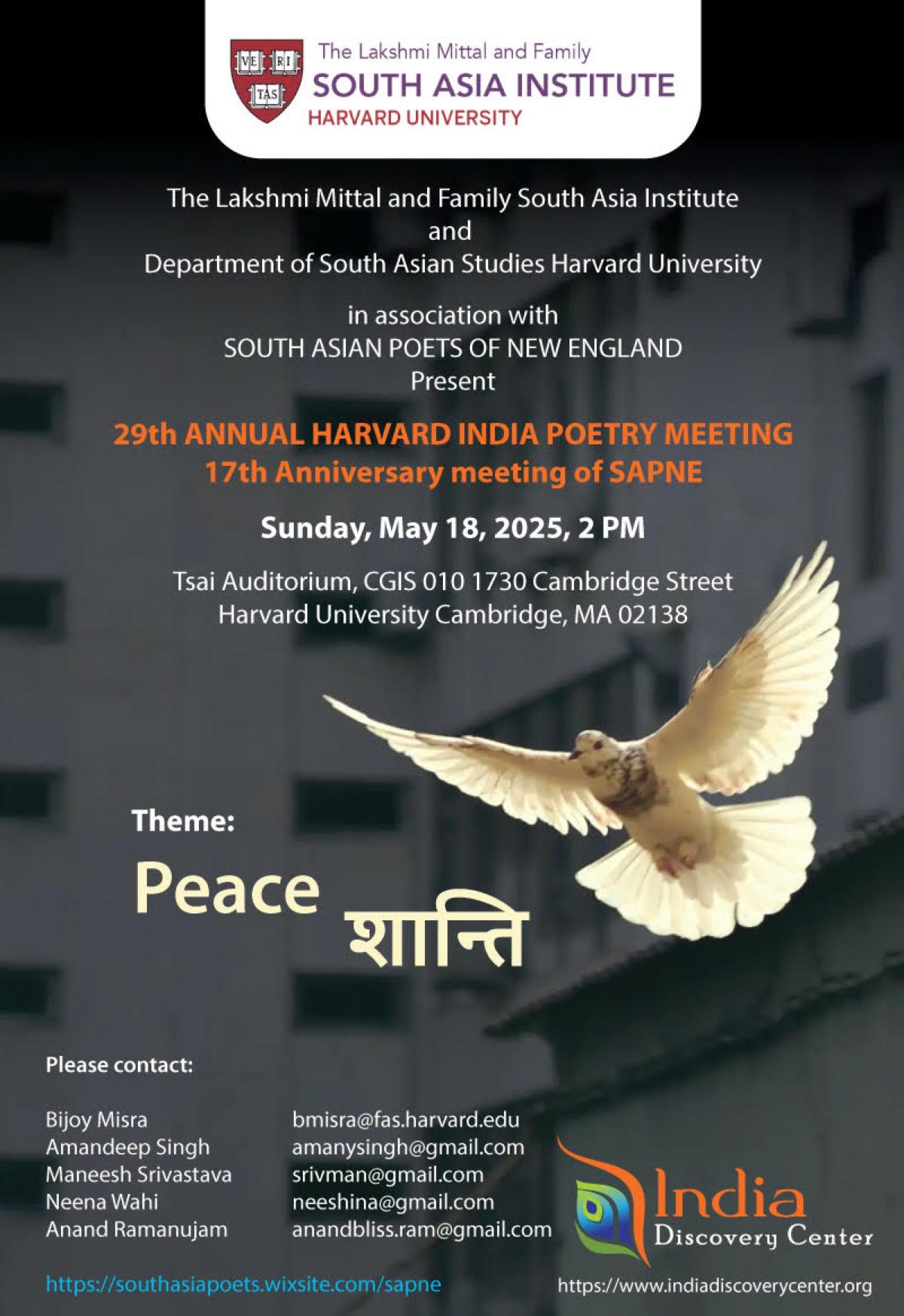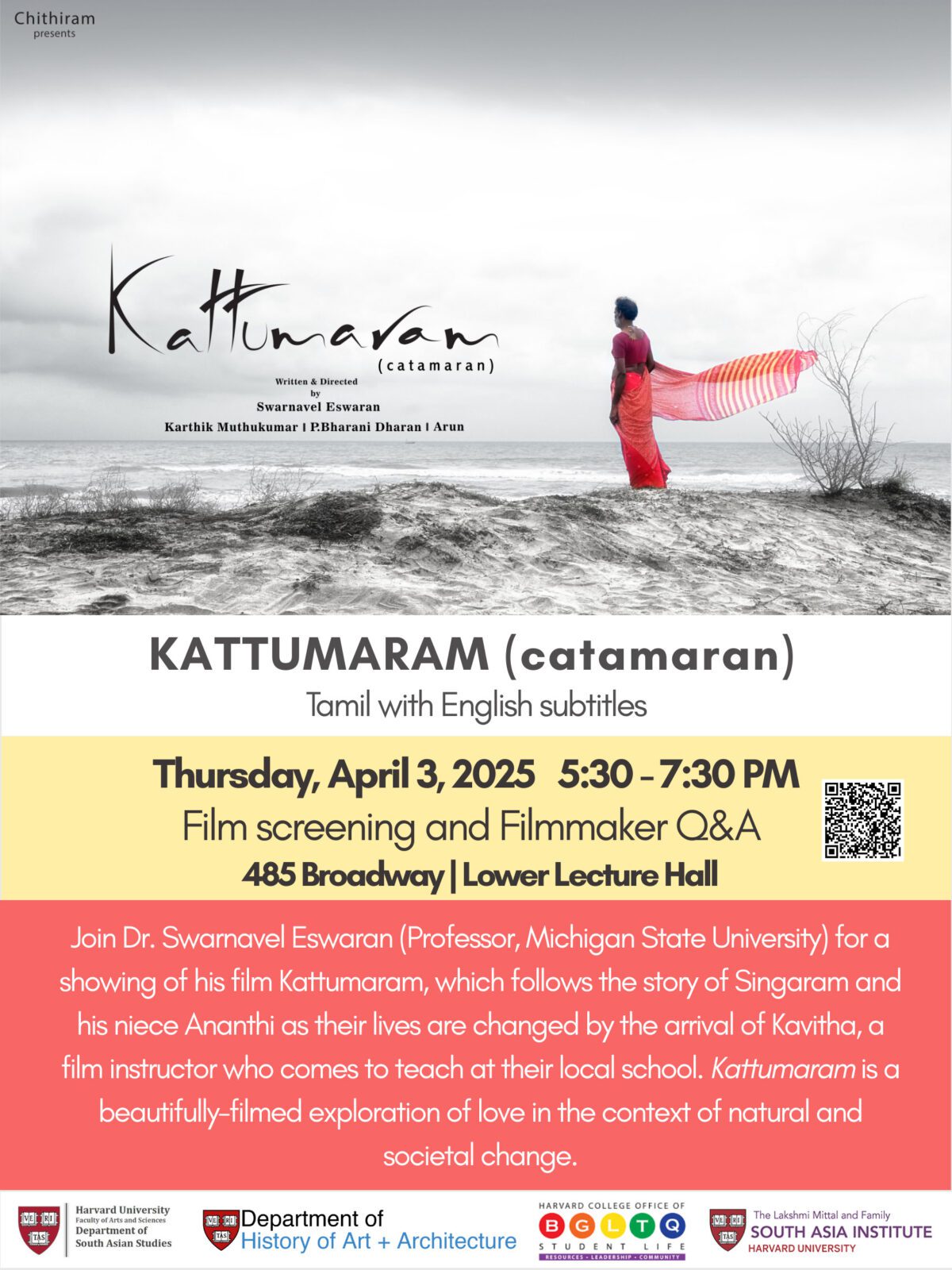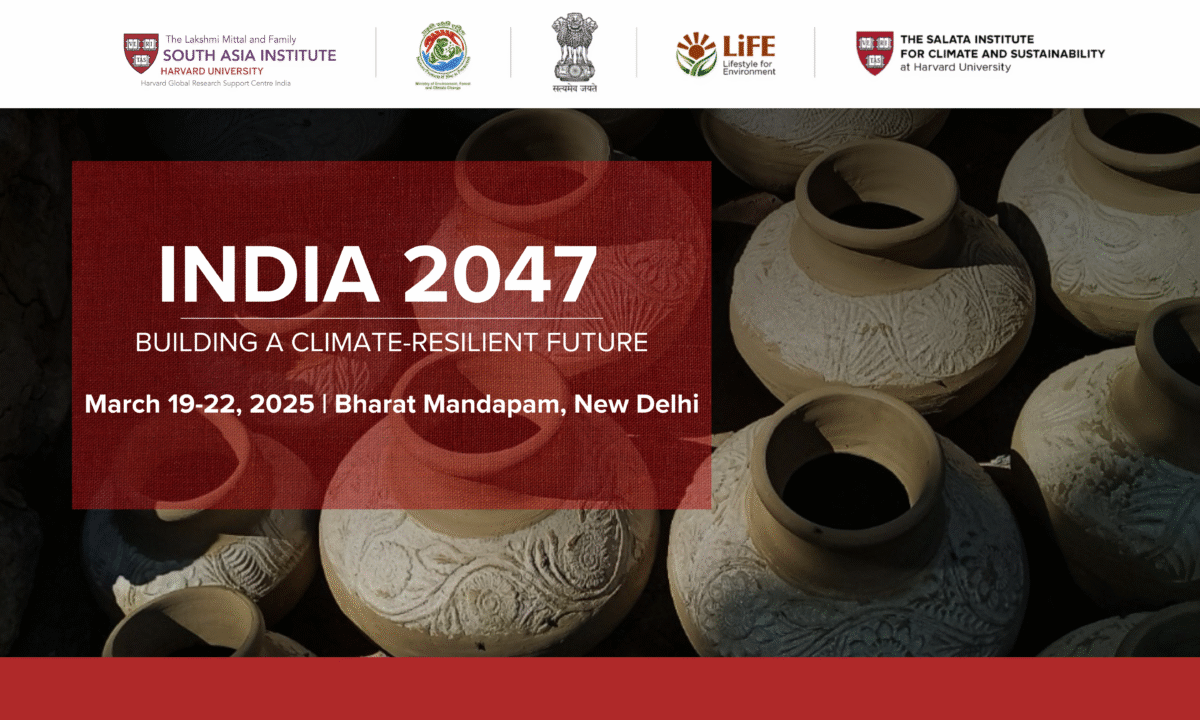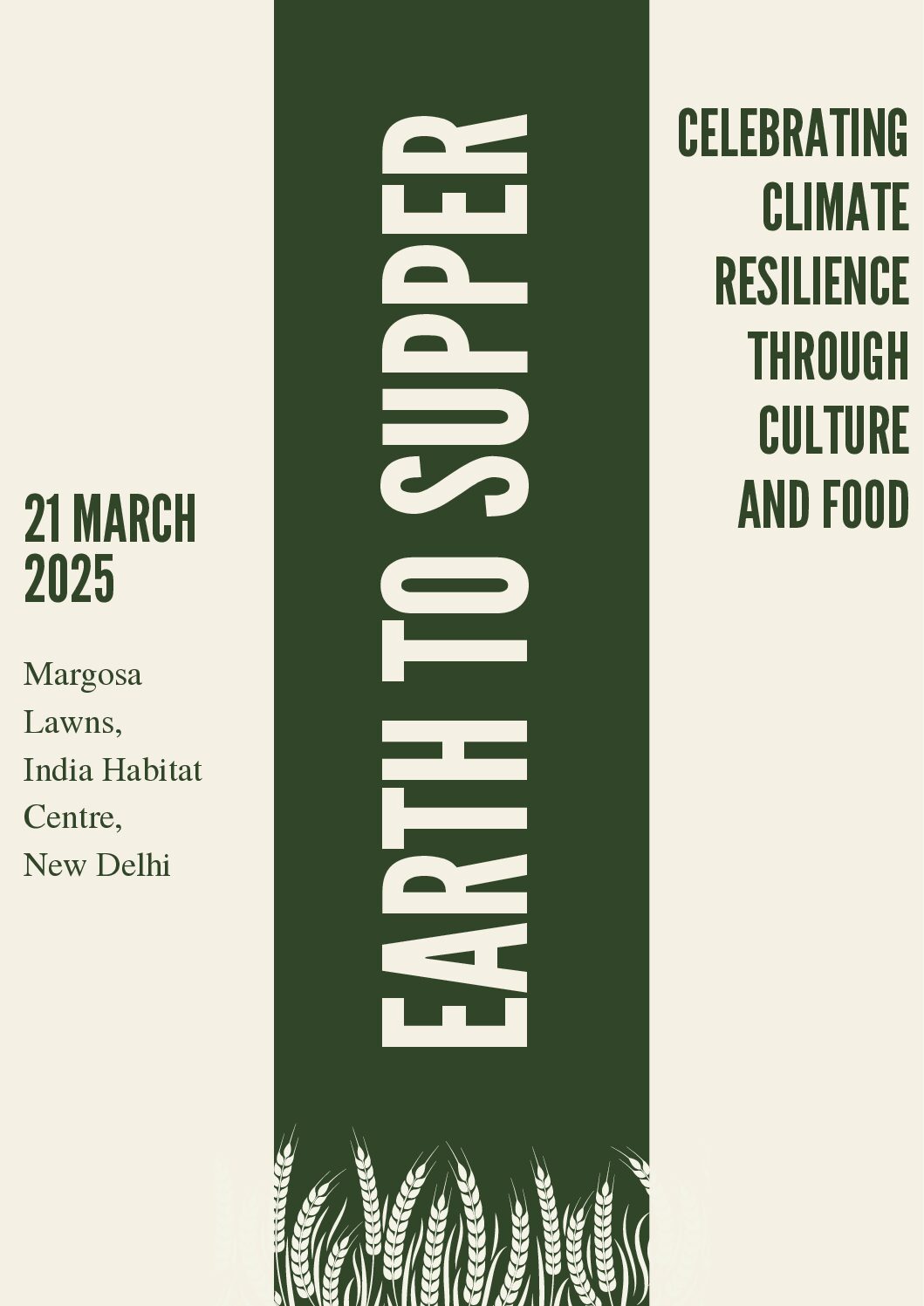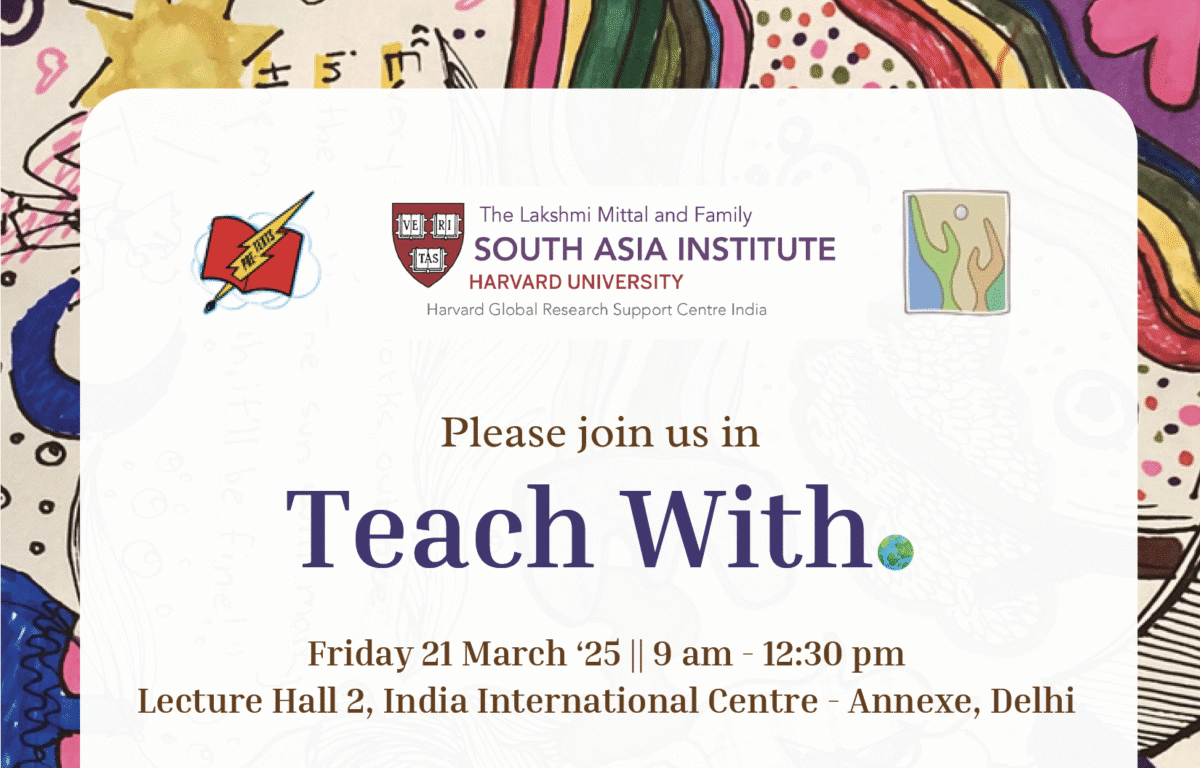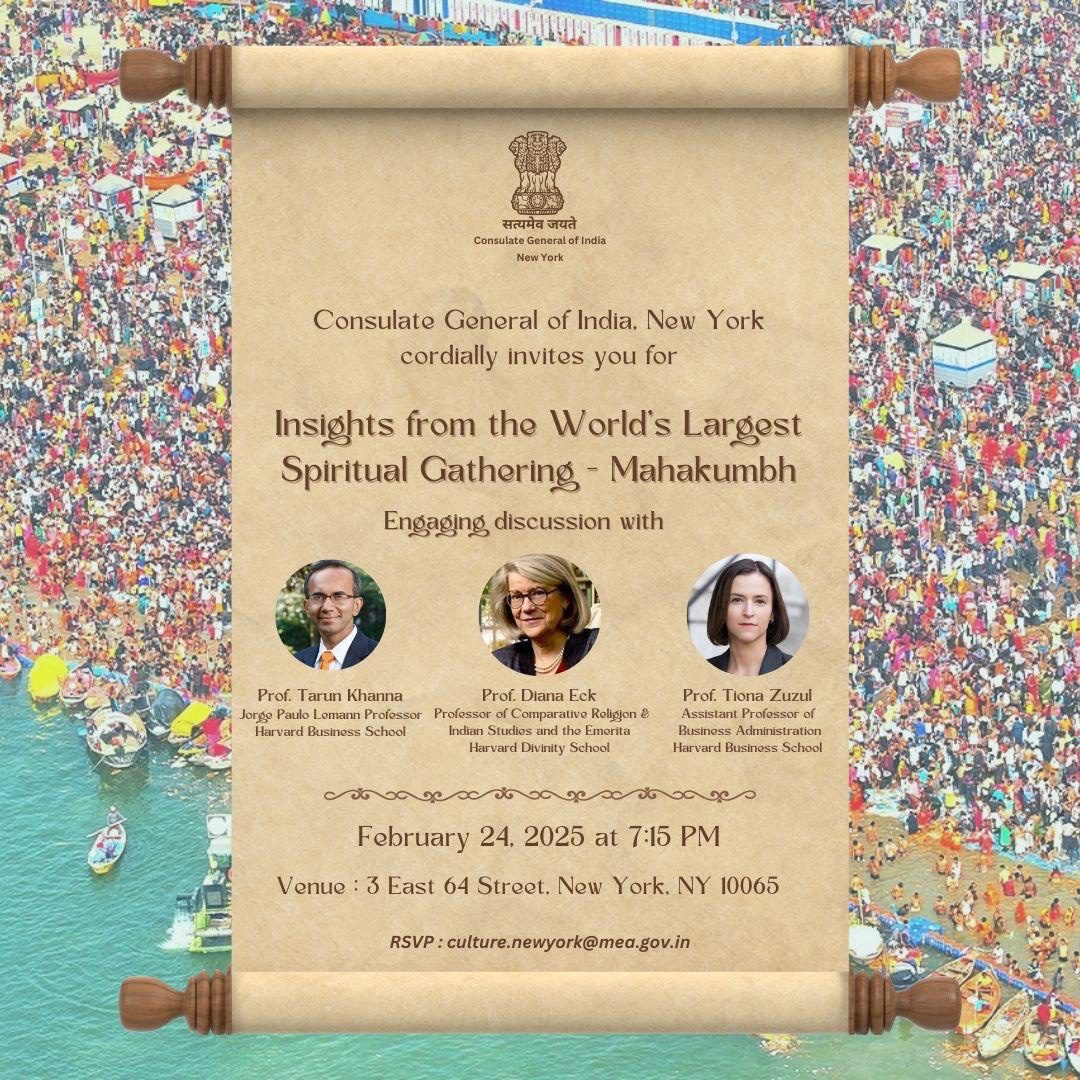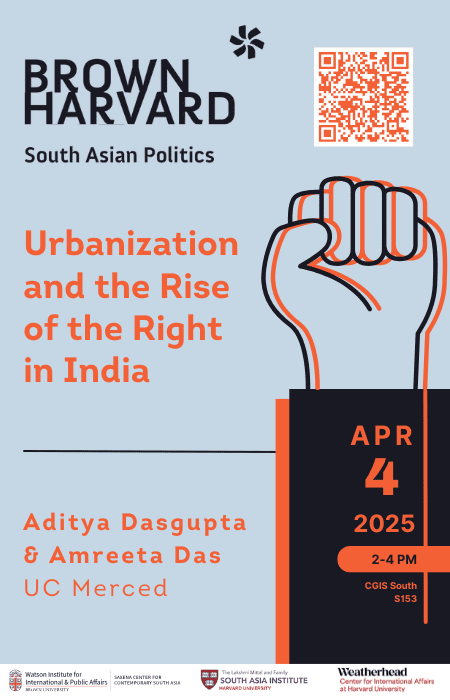WHEN
Fri, Jun 13, 2025 from 05:00pm — 06:30pm, IST
Join us virtually for an informative session on Friday, June 13, 2025, to gain insights into the eligibility criteria, application process, and benefits of the Fellowship. You’ll also have the opportunity to interact with current India Fellows and get responses to your questions.
More InfoWHEN
Fri, May 30, 2025 - Wed, Jun 25, 2025, ET
The HUM SAB EK traveling exhibition, curated by Dr. Satchit Balsari and Hiteshree Das GSD ’25, is opening on May 30 at the International Labor Organization Headquarters in Geneva, Switzerland. The multimedia exhibition is open to ILO staff and the nearly 5,000 delegates from 187 countries attending the International Labor Conference next week. Its presence at this location is of particular salience to members of the Self Employed Women’s Association (SEWA), whose stories of reliance and nurturance it captures, and to workers worldwide.
More InfoWHEN
Fri, May 9, 2025 at 04:30pm, ET — Sat, May 10, 2025 at 03:00pm, ET
VENUE
Main Theater, Hopkins Bloomberg Center
HUM SAB EK (We Are One) will stop in Washington, DC, for a panel and curatorial tours. It will be the fifth in a continuing series of discussions across academic institutions, international development organizations, and public and private sectors, examining alternatives to our current future.
More InfoWHEN
Thu, Apr 3, 2025 from 05:30pm — 07:30pm, ET
VENUE
Cambridge – 485 Broadway, Lower Lecture Hall
Join Dr. Swarnavel Eswaran (Professor, Department of English and the School of Journalism, Michigan State University) for a showing of his film Kattumaram, followed by a 30-minute Q&A.
More InfoWHEN
Wed, Mar 19, 2025 at 03:00pm, IST — Sat, Mar 22, 2025 at 02:00pm, IST
‘India 2047: Building a Climate-Resilient Future’ brings together leading experts in climate science, public health, medicine, labor, business, agriculture, and urban planning for a series of interdisciplinary dialogues on advancing climate resilience.
More InfoWHEN
Wed, Mar 5, 2025 from 05:00pm — 06:00pm, ET
The Salata Institute for Climate and Sustainability and The Lakshmi Mittal and Family South Asia Institute invite you to hear from photographer and environmental artist Claudio Cambon, whose To Reach the Source: The Stepwells of India series is currently on display at the Center for the Environment.
More InfoWHEN
Wed, Mar 19, 2025 - Wed, Apr 2, 2025, IST
The National Foundation for India and The Lakshmi Mittal and Family South Asia Institute invite you visit To Reach the Source: The Stepwells of India, an exhibition by photographer and environmental artist Claudio Cambon.
More InfoWHEN
Mon, Feb 24, 2025 at 07:15pm, ET
VENUE
New York City – Consulate General of India, 3 E 64th St
Please join us in New York City to hear more about research conducted by Professors Tarun Khanna, Diana Eck, and Tiona Zuzul on Kumbh Mela, the world’s largest religious celebration.
More InfoWHEN
Fri, Apr 4, 2025 from 02:00pm — 04:00pm, ET
Please join us for a seminar on South Asian politics with Aditya Dasgupta, Assistant Professor of Political Science, and Amreeta Das, PhD candidate in Political Science at the University of California, Merced.
More Info